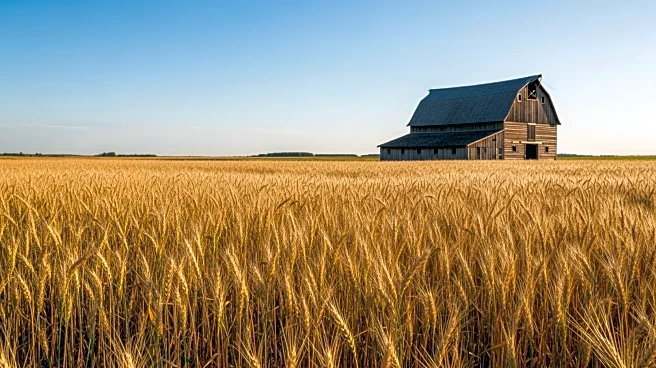What's Happening?
Economic advisers in South Dakota have raised concerns about the state's agriculture sector, citing an oversupply of crops and weakened foreign demand as key issues. During a virtual meeting, Karl Adam, president of the South Dakota Bankers Association, noted that farmers are facing significant losses per acre due to falling crop prices. Evert Van der Sluis, an economics professor at South Dakota State University, pointed out that the state's GDP growth forecast is lower than the national average, partly due to these agricultural challenges. The advisers also discussed labor shortages and the impact of federal tariffs, particularly those imposed by the Trump administration, which have affected international trade relations.
Why It's Important?
The situation in South Dakota's agriculture sector is crucial as it affects the state's economic stability and the livelihoods of farmers. The decline in crop prices and foreign demand can lead to reduced income for farmers, impacting local economies and potentially leading to increased financial strain. The broader implications include potential shifts in agricultural policy and trade relations, as stakeholders may push for government intervention to support the sector. The challenges also highlight the need for strategic planning to address labor shortages and adapt to changing international market dynamics.
What's Next?
South Dakota's economic advisers may continue to monitor the situation and advocate for policy changes to support the agriculture sector. Potential government interventions could include financial aid or adjustments to trade policies to mitigate the impact of tariffs. Farmers and industry leaders may seek alternative markets or strategies to improve profitability. The ongoing discussions could lead to collaborative efforts between state and federal agencies to address these economic challenges.









